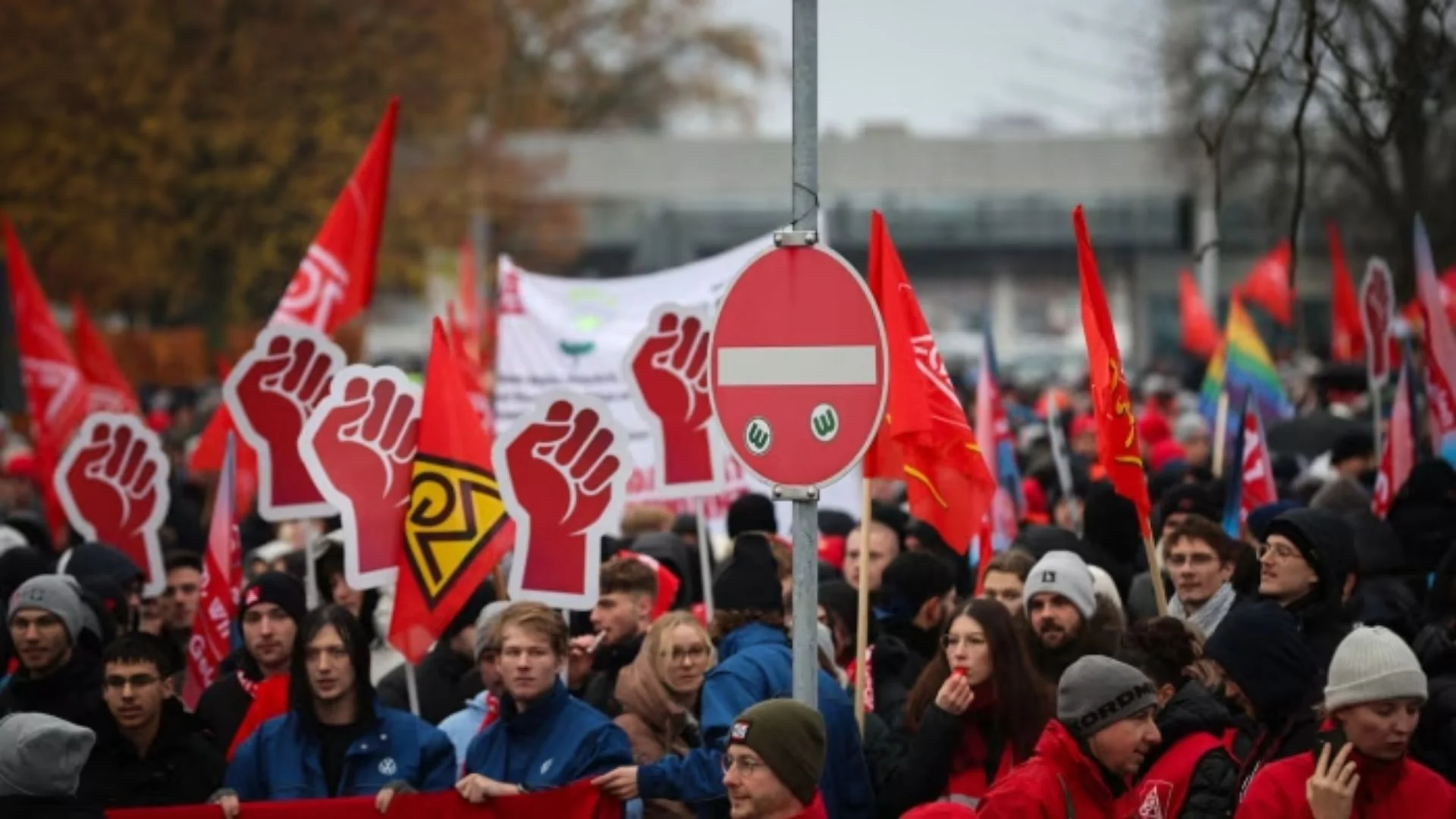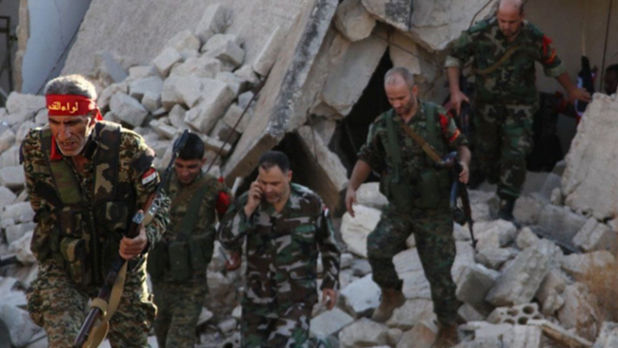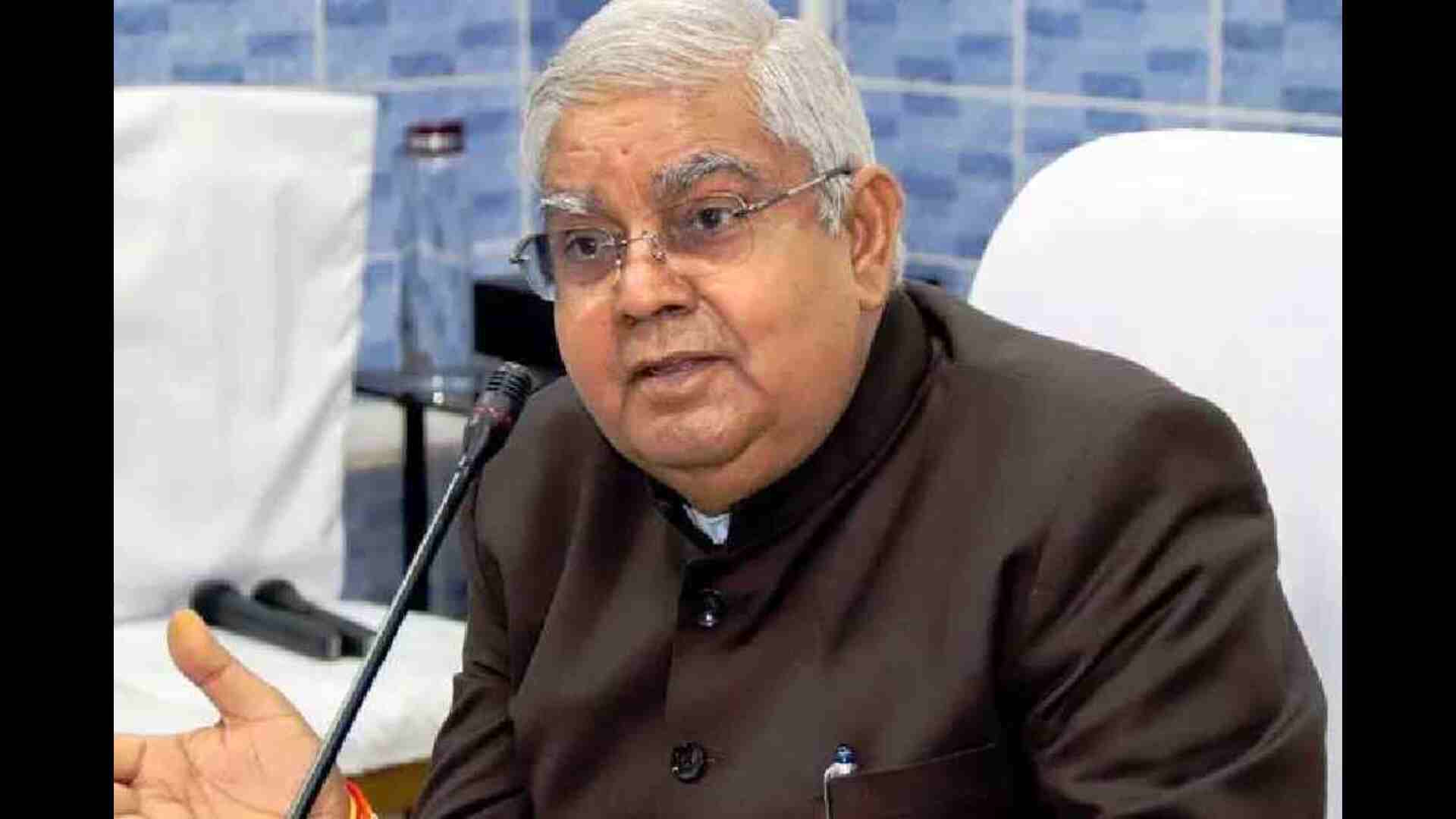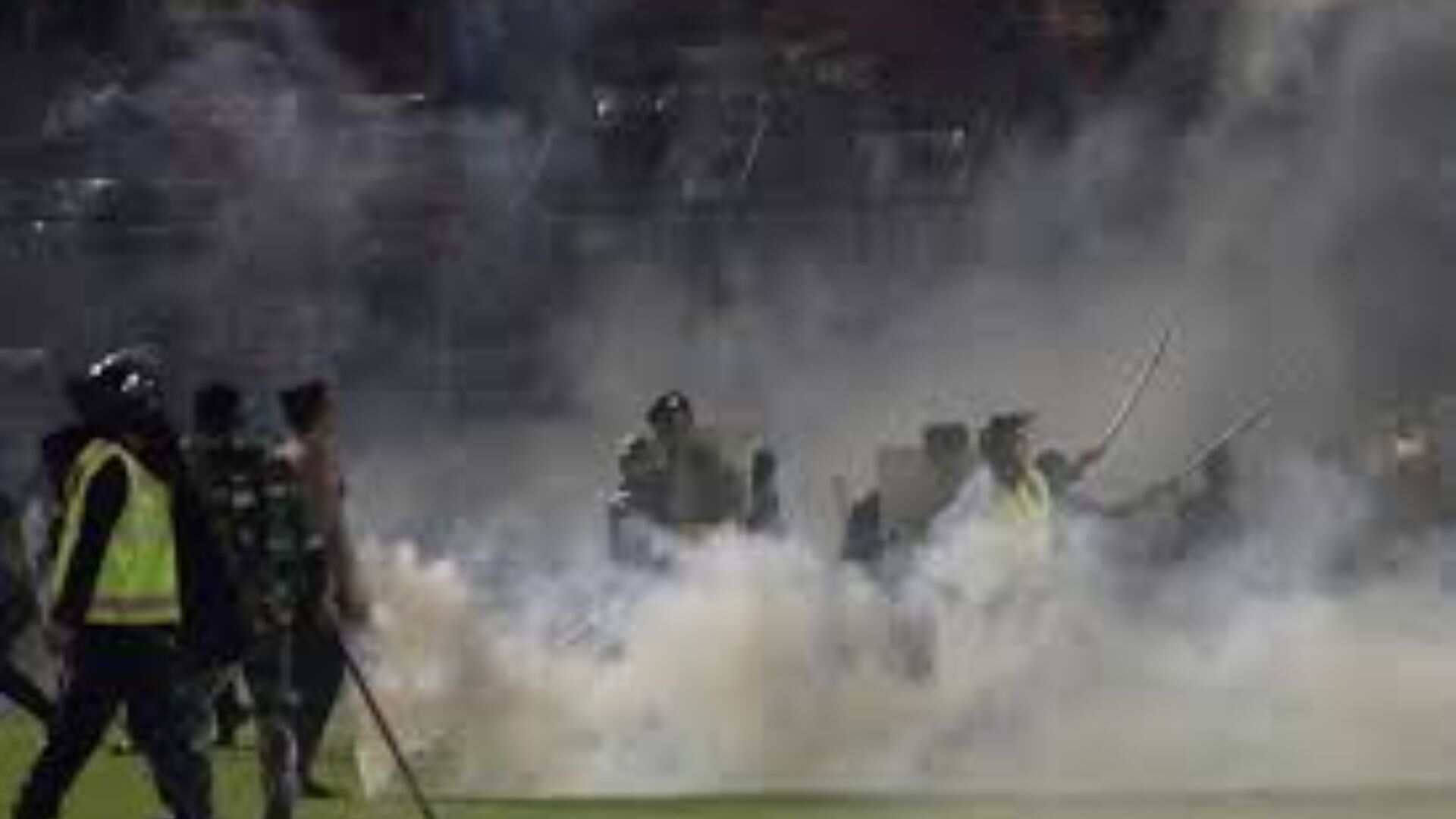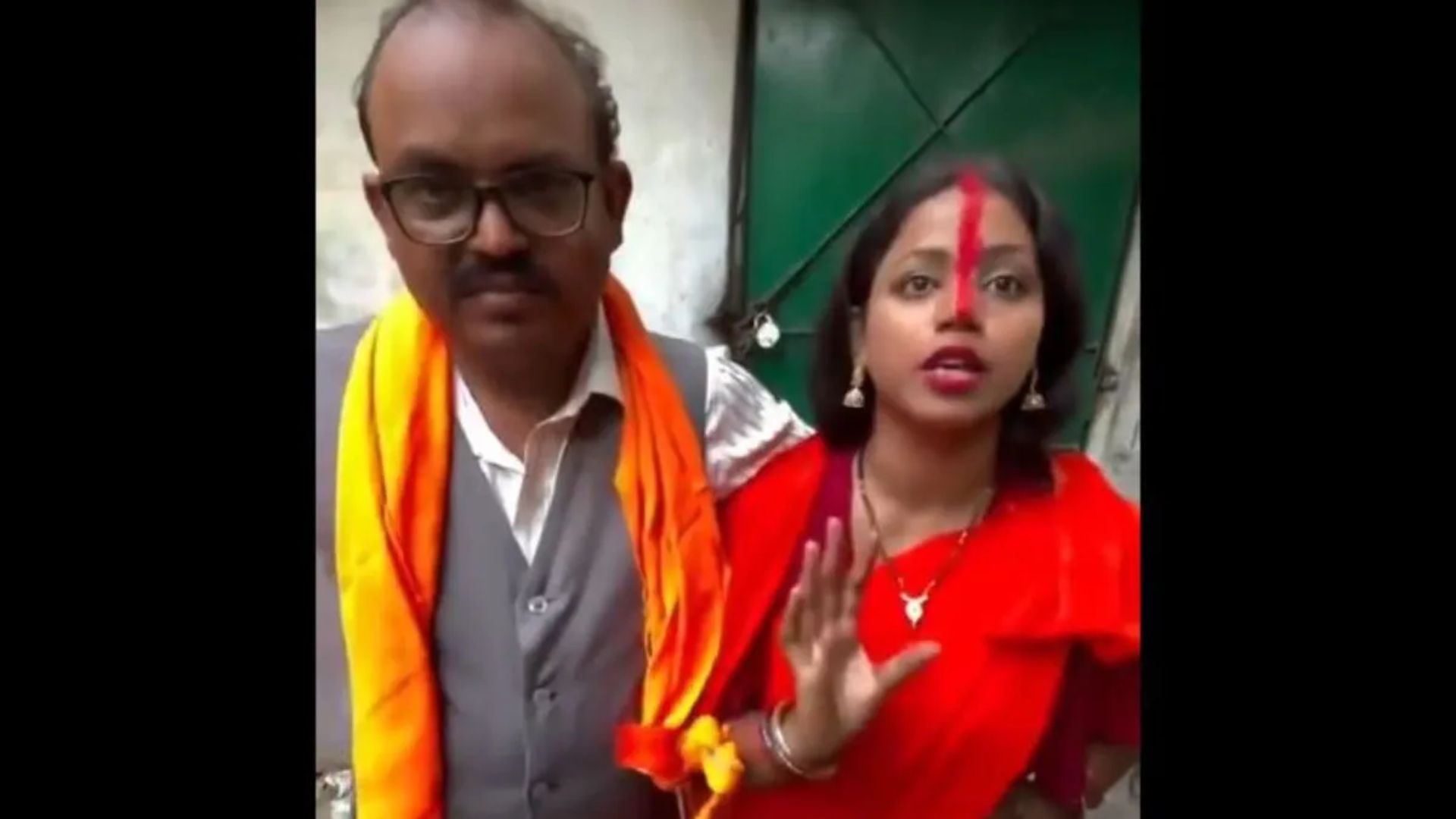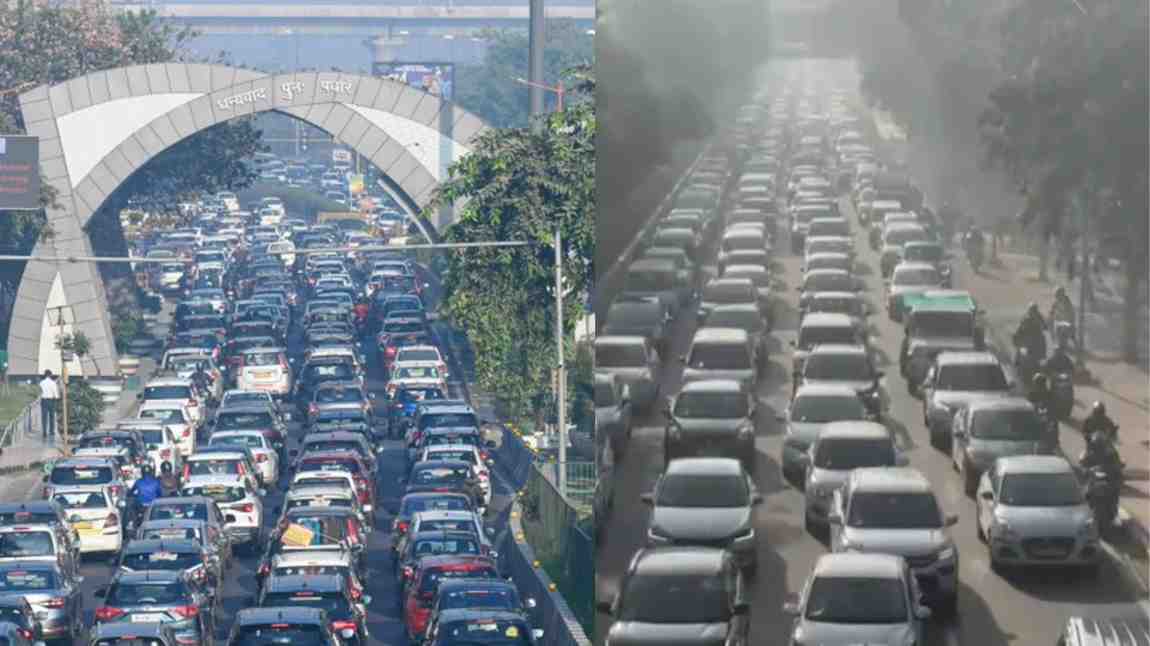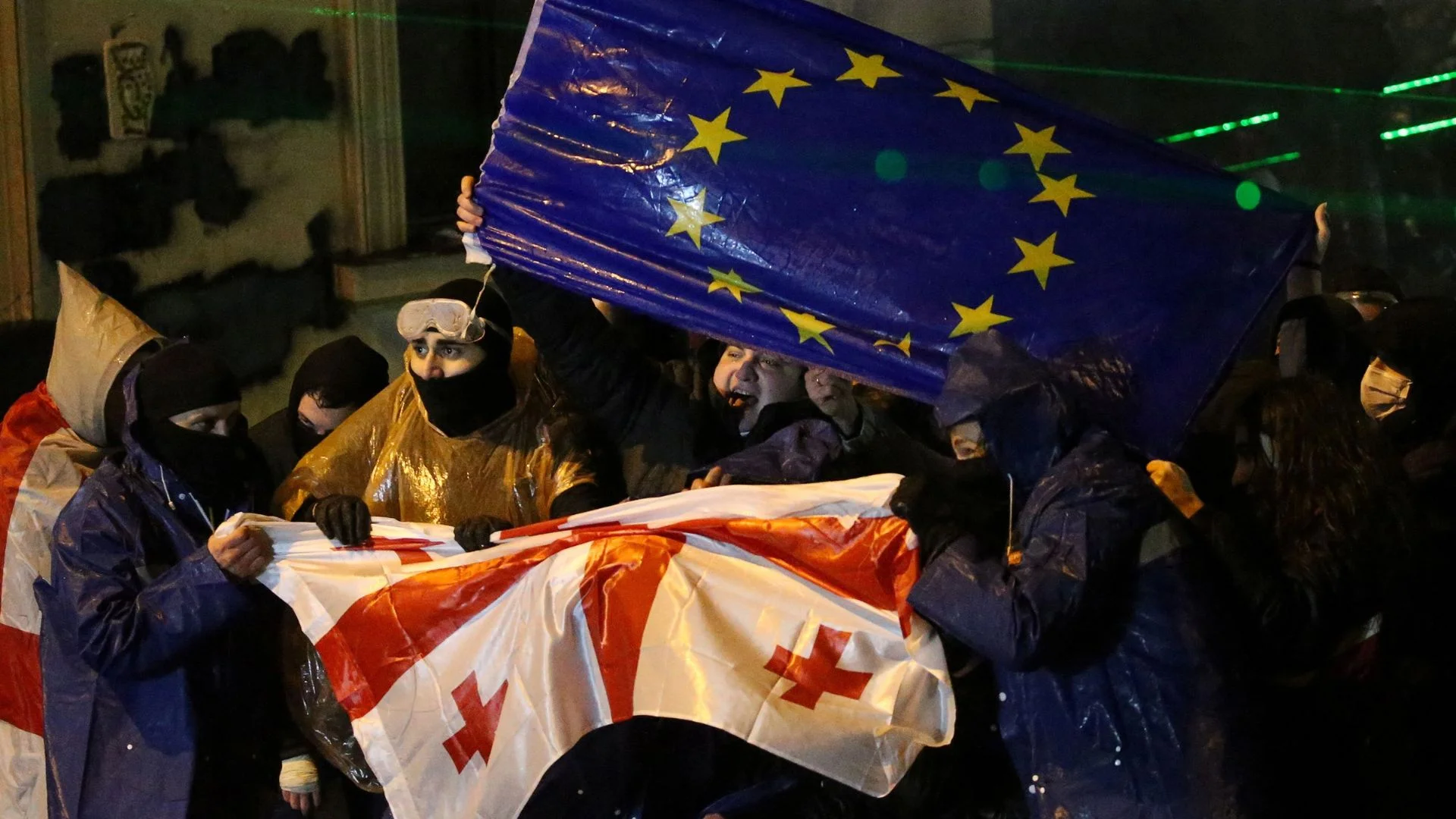
Georgia police in capital deployed water cannons and tear gas early Monday to disperse protesters opposing the government’s decision to pause talks on joining the European Union. Several demonstrators were detained during the clashes, as per the Russian news agencies.
For days, thousands of Georgians have been rallying against the ruling Georgian Dream party, accusing it of steering the country of 3.7 million toward authoritarianism and closer ties with Russia, while abandoning its pro-Western aspirations.
The protests, centered around the parliament building on Rustaveli Avenue, turned violent as demonstrators clashed with law enforcement. Police used force to clear the avenue, pushing crowds toward the Tbilisi Opera House and setting up makeshift barricades. Protesters hurled fireworks at officers, who retaliated with water cannons and tear gas.
The unrest follows Thursday’s announcement that EU membership talks would be frozen for four years, heightening tensions. Pro-EU demonstrators have since called for continued pressure on the government.
The Georgian Interior Ministry reported 113 police officers injured during the protests, while it remains unclear how many demonstrators were detained. By early Monday, only a small group of protesters remained near a metro station, according to Russia’s Interfax news agency.
On Sunday, four opposition groups urged citizens to invoke labor laws to take paid leave and join the protests. They also called on employers to support their participation.
Georgia’s pro-Western President Salome Zourabichvili has demanded that the Constitutional Court annul last month’s parliamentary elections, which Georgian Dream won amid allegations of voter fraud. Zourabichvili and the opposition claim the election was rigged.
International concern is mounting. Both the European Union and the United States have expressed alarm over what they perceive as Georgia’s pivot away from the West and back into Russia’s sphere of influence. However, Georgian Dream insists its actions aim to protect the country’s sovereignty from foreign interference.
The crisis underscores a growing divide in Georgian society over the nation’s geopolitical future.
